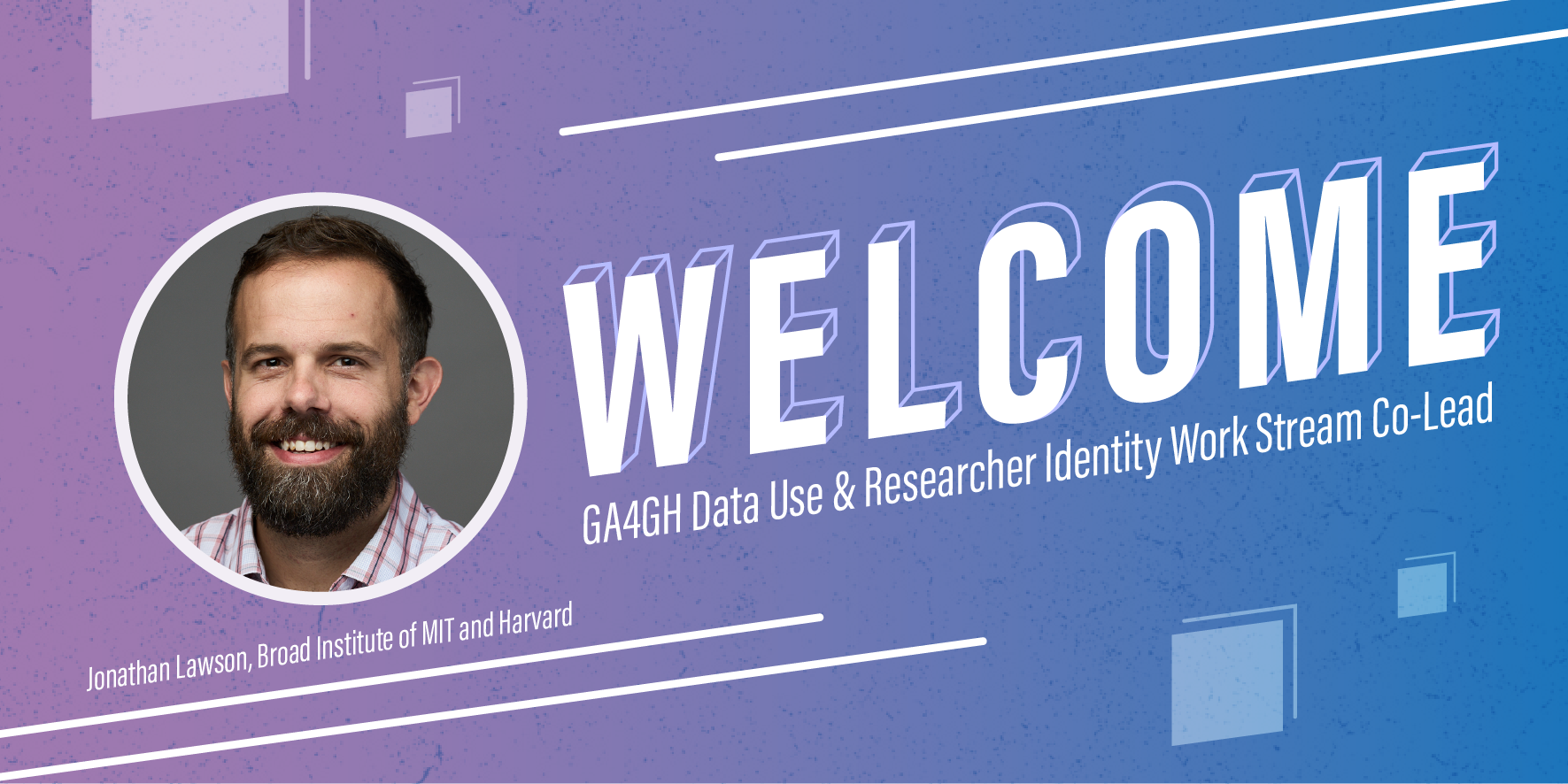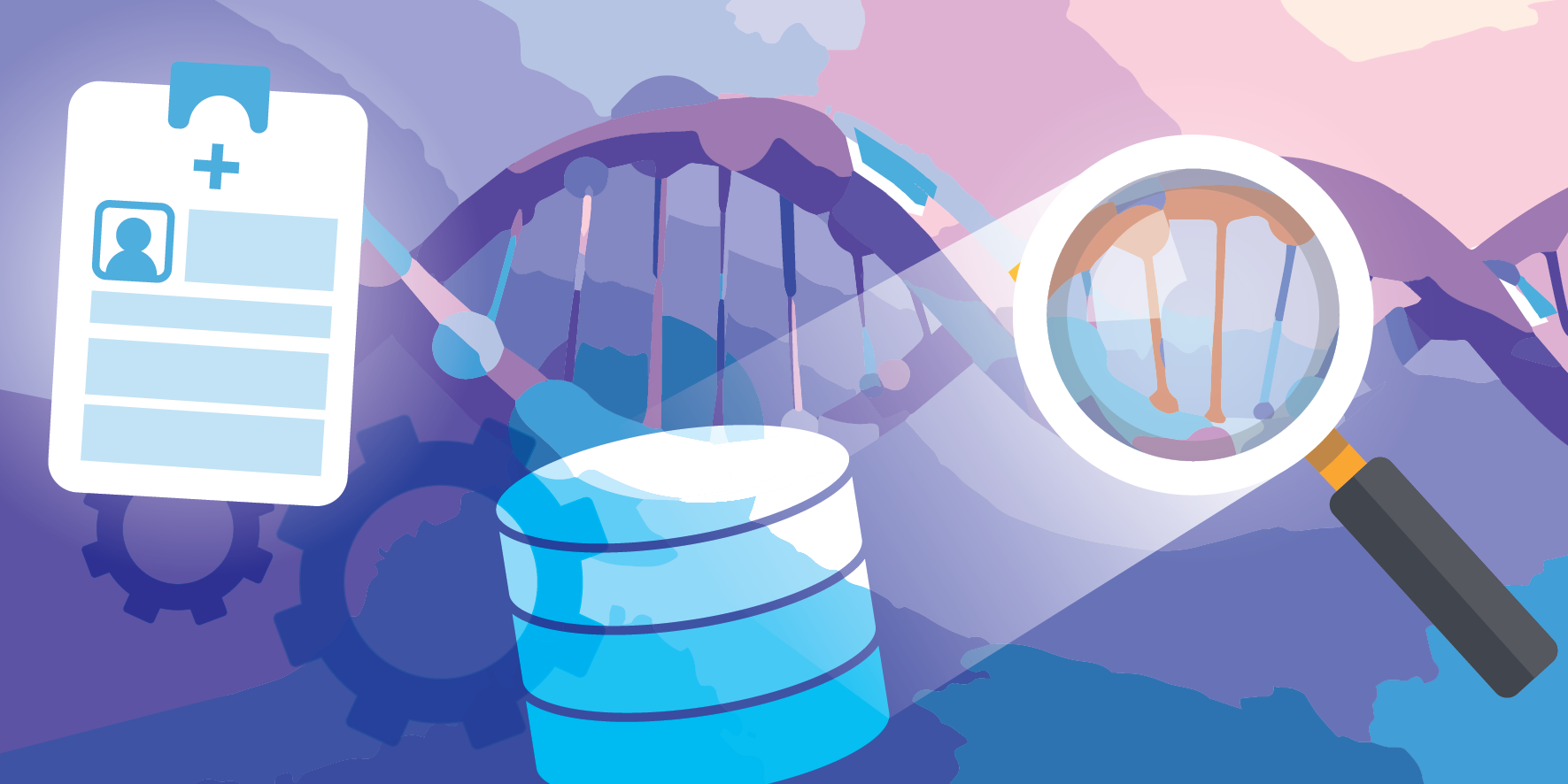About us
Learn how GA4GH helps expand responsible genomic data use to benefit human health.
Learn how GA4GH helps expand responsible genomic data use to benefit human health.
Our Strategic Road Map defines strategies, standards, and policy frameworks to support responsible global use of genomic and related health data.
Discover how a meeting of 50 leaders in genomics and medicine led to an alliance uniting more than 5,000 individuals and organisations to benefit human health.
GA4GH Inc. is a not-for-profit organisation that supports the global GA4GH community.
The GA4GH Council, consisting of the Executive Committee, Strategic Leadership Committee, and Product Steering Committee, guides our collaborative, globe-spanning alliance.
The Funders Forum brings together organisations that offer both financial support and strategic guidance.
The EDI Advisory Group responds to issues raised in the GA4GH community, finding equitable, inclusive ways to build products that benefit diverse groups.
Distributed across a number of Host Institutions, our staff team supports the mission and operations of GA4GH.
Curious who we are? Meet the people and organisations across six continents who make up GA4GH.
More than 500 organisations connected to genomics — in healthcare, research, patient advocacy, industry, and beyond — have signed onto the mission and vision of GA4GH as Organisational Members.
These core Organisational Members are genomic data initiatives that have committed resources to guide GA4GH work and pilot our products.
This subset of Organisational Members whose networks or infrastructure align with GA4GH priorities has made a long-term commitment to engaging with our community.
Local and national organisations assign experts to spend at least 30% of their time building GA4GH products.
Anyone working in genomics and related fields is invited to participate in our inclusive community by creating and using new products.
Wondering what GA4GH does? Learn how we find and overcome challenges to expanding responsible genomic data use for the benefit of human health.
Study Groups define needs. Participants survey the landscape of the genomics and health community and determine whether GA4GH can help.
Work Streams create products. Community members join together to develop technical standards, policy frameworks, and policy tools that overcome hurdles to international genomic data use.
GIF solves problems. Organisations in the forum pilot GA4GH products in real-world situations. Along the way, they troubleshoot products, suggest updates, and flag additional needs.
GIF Projects are community-led initiatives that put GA4GH products into practice in real-world scenarios.
The GIF AMA programme produces events and resources to address implementation questions and challenges.
NIF finds challenges and opportunities in genomics at a global scale. National programmes meet to share best practices, avoid incompatabilities, and help translate genomics into benefits for human health.
Communities of Interest find challenges and opportunities in areas such as rare disease, cancer, and infectious disease. Participants pinpoint real-world problems that would benefit from broad data use.
The Technical Alignment Subcommittee (TASC) supports harmonisation, interoperability, and technical alignment across GA4GH products.
Find out what’s happening with up to the minute meeting schedules for the GA4GH community.
See all our products — always free and open-source. Do you work on cloud genomics, data discovery, user access, data security or regulatory policy and ethics? Need to represent genomic, phenotypic, or clinical data? We’ve got a solution for you.
All GA4GH standards, frameworks, and tools follow the Product Development and Approval Process before being officially adopted.
Learn how other organisations have implemented GA4GH products to solve real-world problems.
Help us transform the future of genomic data use! See how GA4GH can benefit you — whether you’re using our products, writing our standards, subscribing to a newsletter, or more.
Join our community! Explore opportunities to participate in or lead GA4GH activities.
Help create new global standards and frameworks for responsible genomic data use.
Align your organisation with the GA4GH mission and vision.
Want to advance both your career and responsible genomic data sharing at the same time? See our open leadership opportunities.
Join our international team and help us advance genomic data use for the benefit of human health.
Discover current opportunities to engage with GA4GH. Share feedback on our products, apply for volunteer leadership roles, and contribute your expertise to shape the future of genomic data sharing.
Solve real problems by aligning your organisation with the world’s genomics standards. We offer software dvelopers both customisable and out-of-the-box solutions to help you get started.
Learn more about upcoming GA4GH events. See reports and recordings from our past events.
Speak directly to the global genomics and health community while supporting GA4GH strategy.
Be the first to hear about the latest GA4GH products, upcoming meetings, new initiatives, and more.
Questions? We would love to hear from you.
Read news, stories, and insights from the forefront of genomic and clinical data use.
Attend an upcoming GA4GH event, or view meeting reports from past events.
See new projects, updates, and calls for support from the Work Streams.
Read academic papers coauthored by GA4GH contributors.
Listen to our podcast OmicsXchange, featuring discussions from leaders in the world of genomics, health, and data sharing.
Check out our videos, then subscribe to our YouTube channel for more content.
View the latest GA4GH updates, Genomics and Health News, Implementation Notes, GDPR Briefs, and more.
Discover all things GA4GH: explore our news, events, videos, podcasts, announcements, publications, and newsletters.
8 Aug 2024
Jonathan Lawson of the Broad Institute of MIT and Harvard has been appointed as the new Co-Lead of the GA4GH Data Use & Researcher Identity (DURI) Work Stream.

By Jaclyn Estrin, GA4GH Science Writer
The Global Alliance for Genomics and Health (GA4GH) is pleased to welcome Jonathan Lawson of the Broad Institute of MIT and Harvard as the new Co-Lead of the Data Use & Research Identity (DURI) Work Stream. Lawson joins incumbent DURI Co-Lead Jaime Guidry Auvil of the Center for Biomedical Informatics & Information Technology at the National Institutes of Health’s (NIH) National Cancer Institute.
Lawson is Director of Federal Partnerships for the Data Sciences Platform at the Broad Institute, one of GA4GH’s five Host Institutions. In this role, he leads the design, development, and delivery of products pertaining to several software platforms that support biomedical research. Lawson’s work has an intrinsic link to GA4GH’s tenets of responsible genomic data sharing, as he focuses on the lifecycle of data from storage and access to ethical governance and management.
He now brings his expertise to the DURI Work Stream, whose mission is twofold: developing tools that determine how datasets can be used and who can access them.
When participating in health services or research studies, patients and research participants consent to the use of their personal health data and may designate the terms and conditions for that use. DURI develops specifications, protocols, and policies that respect the patients’ wishes, privacy, and consents within the use of this data.
Lawson said, “When we talk about data use or secondary use, we need to have clear boundaries on how researchers are allowed to use data, where it can go, and who can touch it.”
“DURI policies and standards are akin to security checkpoints and passport control in airports,” Lawson continued. “While the infrastructure for air travel or biomedical science is technically functional without them, they uphold and protect the trust essential for the diverse and necessary groups to interact with one another using the given infrastructure.”
As an active contributor of the DURI Work Stream, Lawson provided critical feedback during the development of the GA4GH Passports standard, which serves as a portable electronic identifier. This standard provides a specification for how a researcher’s role, institutions, agreements, and approvals may be represented in technical ecosystems.
Participating in GA4GH Work Streams since 2017, Lawson serves as Product Co-Lead for the Data Use Ontology (DUO), alongside Mélanie Courtot (Ontario Institute for Cancer Research), moving the standard from ideation through initial approval. DUO clarifies how data can be used through machine-readable tags on datasets and helps to facilitate data discovery and access.
He also worked on the standardisation of Data Access Agreements, and co-led the development of the Data Access Committee Review Standards (DACReS) Toolkit with Vasiliki Rahimzadeh (Baylor College of Medicine) and Edward Dove (University of Edinburgh), which provides standard guidance for Data Access Committees to efficiently review data access requests.
Lawson has collaborated on a number of products with the GA4GH Regulatory & Ethics Work Stream (REWS), including the DACReS Toolkit, drawing a link between data use and the ethical, legal, and social frameworks that arise within genomic research and international data sharing. Through this collaboration, Lawson provided feedback on the GA4GH Machine Readable Consent Guidance (MRCG), which gives instruction on how to map research participants’ consent forms directly to the DUO, and helped develop the Ethical Provenance Toolkit, which aims to harmonise tools used throughout the lifecycle of biomedical data.
He is optimistic about galvanising the work of DURI by engaging individuals with a blended expertise and continuing to foster cross-Work-Stream collaboration. “We are aiming to write policies and standards that facilitate the bleeding edge of science while upholding or enhancing compliance. We are going to need to work together with the broader GA4GH community and across Work Streams more than ever,” Lawson said. “There is an opportunity for science to build upon genomics’ roots as an inherently collaborative endeavour.”
Lawson is looking forward to advancing the standards that have been developed by DURI, promoting widespread responsible data sharing, and expanding the Work Stream’s impact through strategic and standardised data use frameworks, perhaps applicable even beyond the field of genomics.
“A colleague of mine often notes that the logistics of science are as important as the science itself, and we need to think hard about both,” Lawson said. “I wholeheartedly agree. Within DURI, we are trying to make science faster by making the logistics of science faster, and that ultimately is going to improve human health.”
